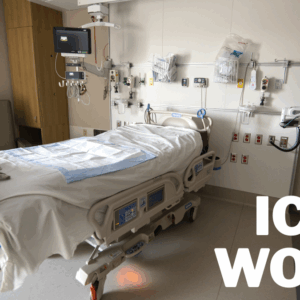In today’s fast-paced world, where convenience and quality healthcare are essential, multispecialty hospitals have emerged as the backbone of modern medical systems. These healthcare institutions offer a wide range of specialized medical services and departments within a single infrastructure, ensuring patients receive holistic treatment without the hassle of visiting multiple clinics or facilities.
What Is a Multispecialty Hospital?
A multispecialty hospital is a healthcare institution that houses various medical specialties such as cardiology, neurology, orthopedics, urology, gynecology, dermatology, oncology, and more—all under one roof. These hospitals are staffed with specialized doctors, advanced diagnostic tools, and state-of-the-art infrastructure, making them a one-stop destination for all kinds of medical needs.
Benefits of Multispecialty Hospitals
Comprehensive Care
Multispecialty hospitals offer integrated medical care where multiple specialists collaborate to diagnose and treat complex health conditions. Patients benefit from this collective expertise, leading to faster and more accurate diagnoses and treatments.
Advanced Technology
These hospitals are equipped with cutting-edge medical technologies including MRI, CT scan, robotic surgery, and digital pathology. This ensures precision in diagnosis and treatment, improving patient outcomes.
Emergency and Trauma Services
Most multispecialty hospitals provide 24/7 emergency services with dedicated trauma centers and ICUs. Immediate access to critical care specialists can often be life-saving.
Time and Cost Efficiency
Since all departments operate within the same building, patients can consult different specialists, get lab tests done, and even undergo surgeries without the need for separate appointments or long waits across different locations.
Multidisciplinary Teams
In critical cases, such as organ transplants or cancer treatment, a team of specialists from different departments can work together to deliver a tailored treatment plan.
Departments Typically Found in a Multispecialty Hospital
- Cardiology (Heart care)
- Neurology & Neurosurgery (Brain and spine care)
- Orthopedics (Bones and joints)
- Gynecology & Obstetrics (Women’s health)
- Oncology (Cancer treatment)
- Pediatrics (Child care)
- Gastroenterology (Digestive system)
- Urology (Kidneys and urinary system)
- Dermatology (Skin care)
- ENT (Ear, Nose, Throat)
Why Are Multispecialty Hospitals Growing in Demand?
With lifestyle diseases on the rise and the population aging, there is an increasing need for efficient, centralized, and specialized care. Multispecialty hospitals meet this demand by offering:
- Convenient scheduling
- Better coordination between departments
- Reduced duplication of medical tests
- Personalized treatment plans
Moreover, these hospitals cater not just to local populations but also to medical tourists seeking world-class healthcare services at affordable prices.
Conclusion
Multispecialty hospitals are revolutionizing the healthcare industry by offering convenience, coordinated care, and cutting-edge technology. Whether you need a routine check-up or a complex surgical procedure, these institutions ensure that your healthcare journey is smooth, safe, and efficient.
Choosing the right multispecialty hospital can significantly impact your health outcomes. Look for facilities with certified professionals, modern infrastructure, and a patient-centered approach for the best care possible.






